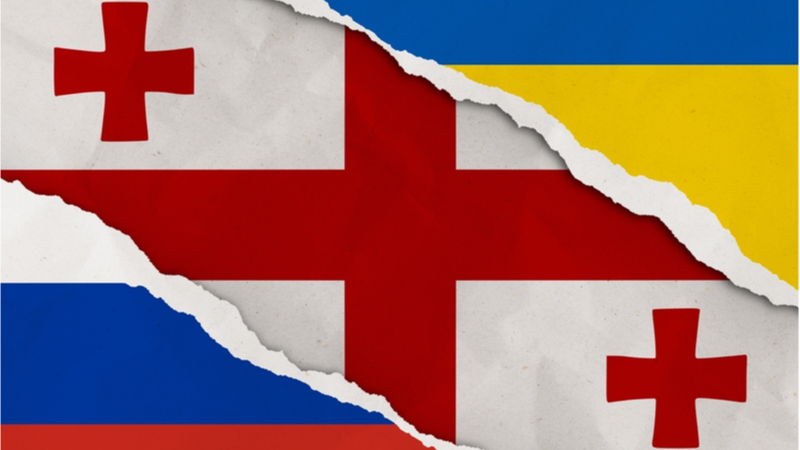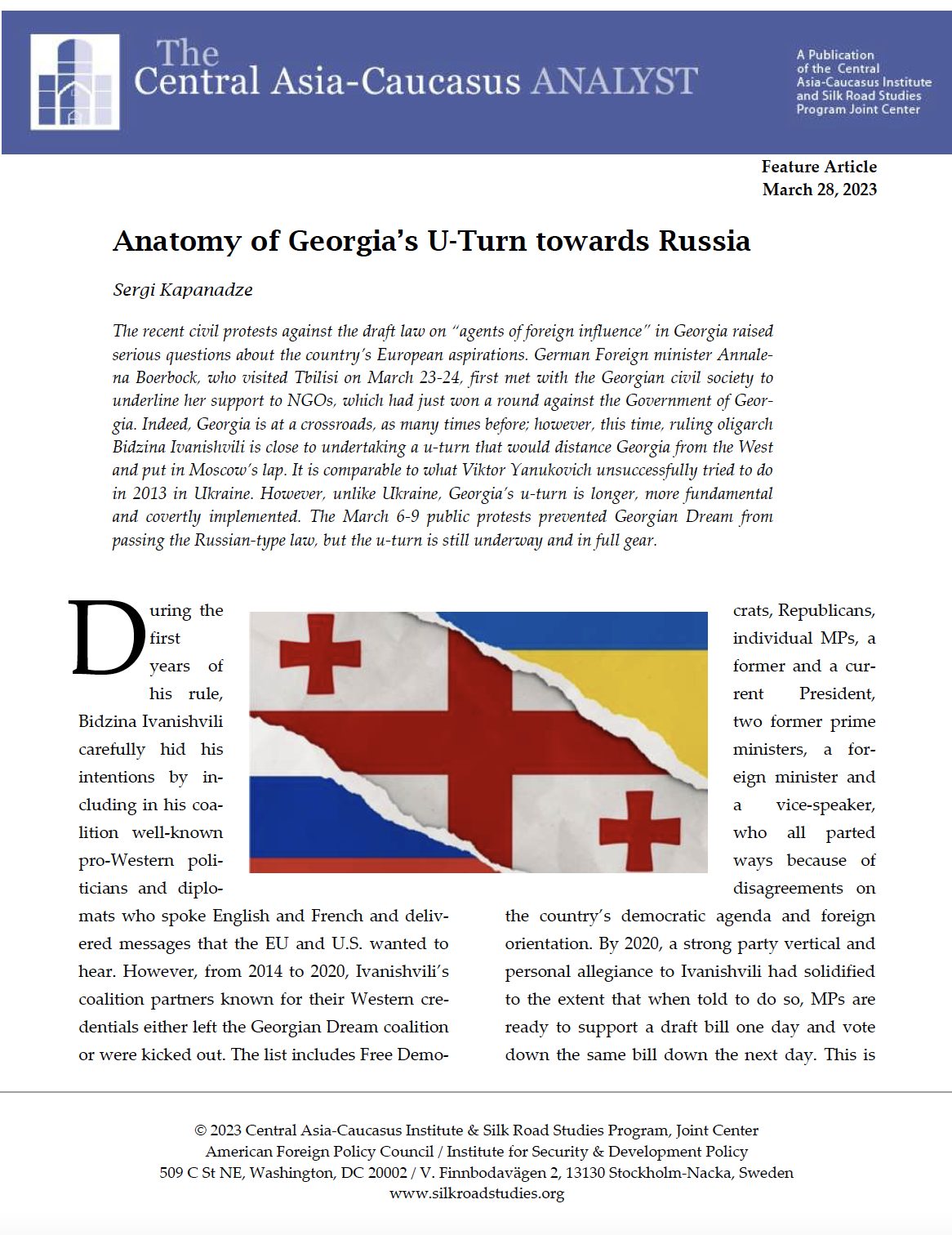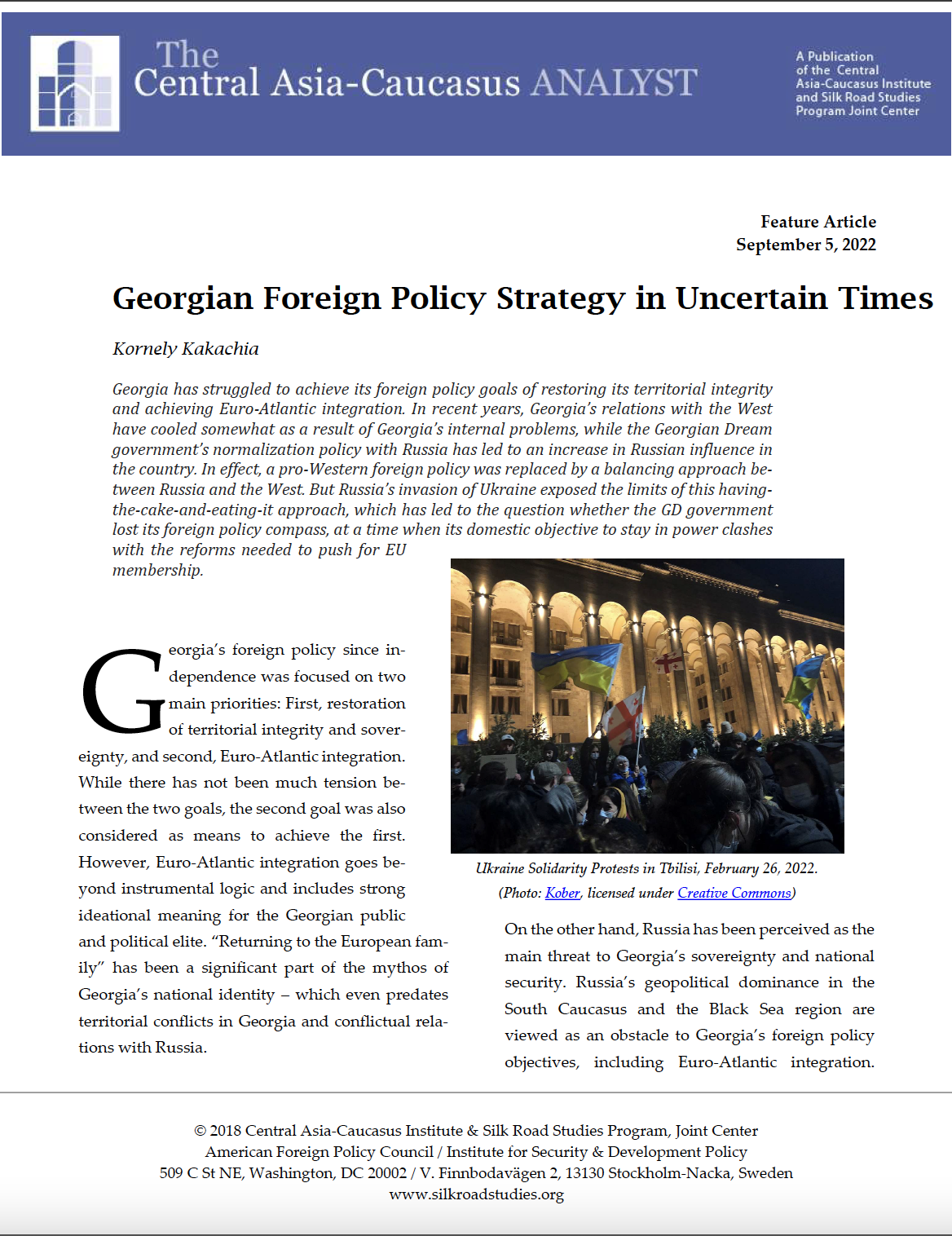Anatomy of Georgia’s U-Turn towards Russia
By Sergi Kapanadze
March 28, 2022
Georgian Foreign Policy Strategy in Uncertain Times
By Kornely Kakachia
September 5, 2022
Georgia has struggled to achieve its foreign policy goals of restoring its territorial integrity and achieving Euro-Atlantic integration. In recent years, Georgia’s relations with the West have cooled somewhat as a result of Georgia’s internal problems, while the Georgian Dream government’s normalization policy with Russia has led to an increase in Russian influence in the country. In effect, a pro-Western foreign policy was replaced by a balancing approach between Russia and the West. But Russia’s invasion of Ukraine exposed the limits of this having the-cake-and-eating-it approach, which has led to the question whether the GD government lost its foreign policy compass, at a time when its domestic objective to stay in power clashes with the reforms needed to push for EU membership.
So-called parliamentary elections in occupied Abkhazia
By Tomáš Baranec and Tengiz Gasviani
July 12, 2022
The second round of Abkhazia’s de facto parliamentary elections took place on March 26. Although the Abkhaz parliament and the political parties enjoy little influence in the local power vertical, this year’s elections could significantly affect the further development of the political situation in the region. A likely “constitutional majority” of pro-president MPs in the parliament does not only complete the concentration of power in the hands of the de facto president Aslan Bzhania, but also allows for constitutional changes. At the same time, it can make Abkhazia more vulnerable to pressure from Russia.
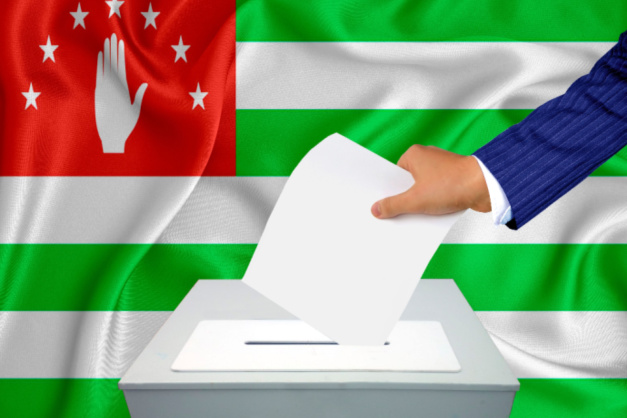
EU dashes Georgia's hopes for candidate country status
By Natalia Konarzewska
July 8, 2022
Georgia made a big leap towards membership in the European Union on March 3 when it submitted a formal application for EU candidate country status alongside Moldova and shortly after the same move by Ukraine, which granted them the nickname of Associated Trio. Yet despite high hopes on June 17, the European Commission recommended that Ukraine and Moldova, but not Georgia, should be awarded candidate country status. A few days later, the EU leaders endorsed this decision based on Georgia’s recent democratic backsliding. Instead, Georgia was offered a “European perspective”, a roadmap to qualify for candidate status in the future.
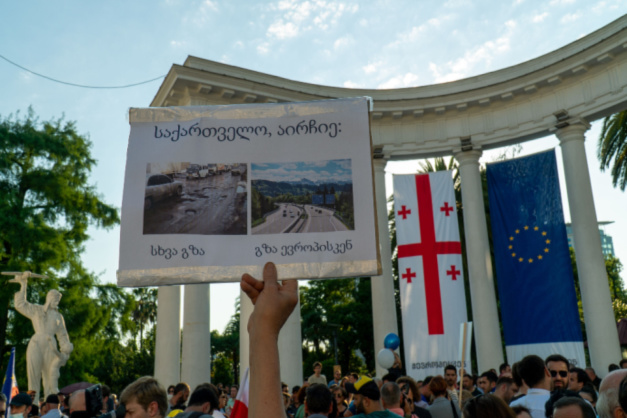
National Interest and Regime Survival: Why Georgia is Cautious Towards the Russia-Ukraine War
By David Aprasidze and Giorgi Gvalia
April 22, 2022
Georgia experienced invasion by Russia in 2008 and is since partially occupied. It shares Euro-Atlantic aspirations with Ukraine. This context suggests that Georgia should be more straightforward and bolder in condemning the Kremlin’s aggression against Ukraine. However, Georgia has taken a cautious stance: it did not join any of the West’s sanctions against Moscow. Georgia’s appeasing posture seems conditioned not only by the security threats posed by Russia but also by Georgia’s domestic politics. The Georgian government is attempting a difficult balance between two types of threats – on the one hand to its national survival and on the other to the survival of its regime.
